Are you struggling with thinning hair, premature graying, or an itchy scalp? Wondering if there’s a natural remedy that could address these concerns? Well, these’s one remedy that you may have not known, clove oil.
You might have asked yourself, “Is clove oil good for hair?” If so, you’re in the right place! In this blog, we’ll dive deep into the benefits and uses of clove oil for hair health. Discover how this ancient remedy can transform your hair care routine, enhance hair growth, and restore your hair’s natural luster.
Join Sure Life Health as we explore the potent properties of clove oil and how to safely incorporate it into your hair care regimen.
Is Clove Oil Good For Hair?
Clove oil, made from the clove plant, has been used for a long time in traditional Chinese medicine and Ayurveda. Ancient civilizations like the Greeks and Romans used it to help improve blood flow, which is important for growing healthy hair. Over time, people all over the world started using clove oil in their hair care routines.
Today, clove oil is still popular for hair care because it has many benefits. It’s full of antioxidants, which protect hair from damage. This oil also has properties that fight germs and fungus, helping to keep the scalp healthy.
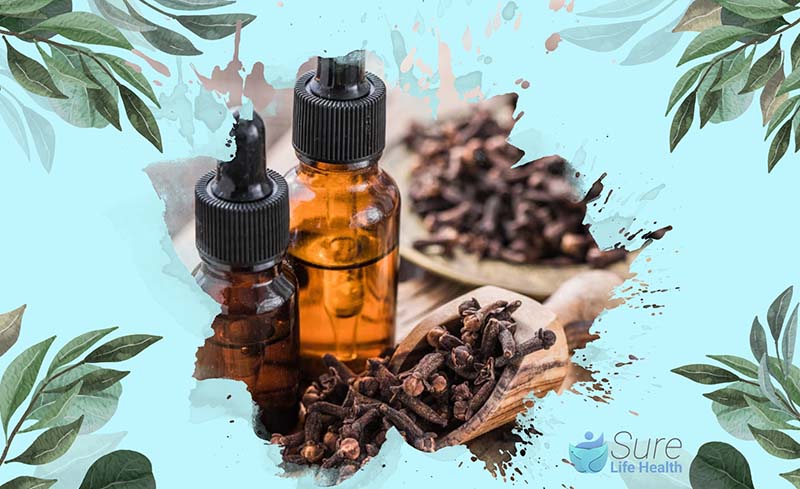
6 Advantages Of Clove Oil For Hair
Is clove oil good for hair? Now you know it delivers even better benefits.
Stimulates Hair Growth
Struggling with stagnant hair growth can be frustrating. You might consider switching to a pricier shampoo or scheduling a hair spa visit. But these solutions often fail to deliver long-term results.
Clove oil, however, offers a natural alternative that can significantly boost hair growth. It is packed with essential vitamins and minerals that nourish your locks.
Regularly massaging a diluted mixture of clove oil into your scalp can enhance blood circulation, ensuring that your hair follicles receive ample nutrients and oxygen.
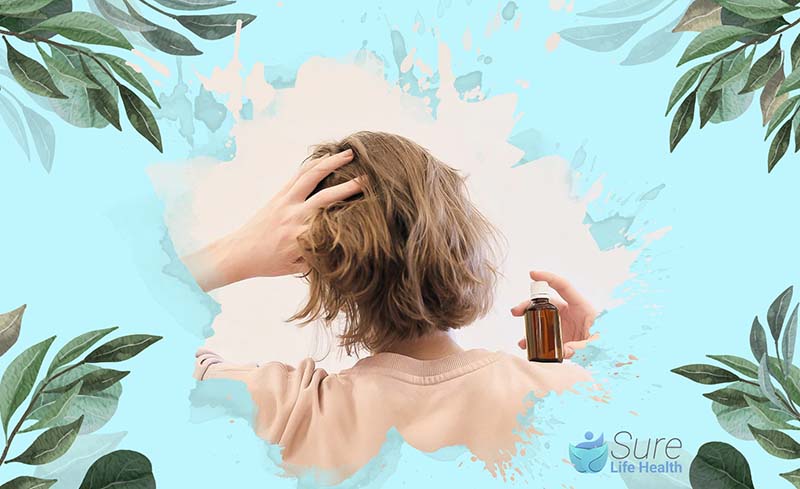
Eliminates Dandruff
Dandruff is a persistent scalp issue that causes itching and flaking, which can undermine your confidence. Many anti-dandruff shampoos provide only temporary relief and can come with undesirable side effects.
Clove oil serves as a potent natural solution. It boasts antiseptic, anti-inflammatory, and antimicrobial properties that not only tackle dandruff but also calm dry, irritated scalps. For an effective treatment, mix about 10 to 12 drops of clove oil into 8 ounces of your regular shampoo and use it to cleanse your hair.
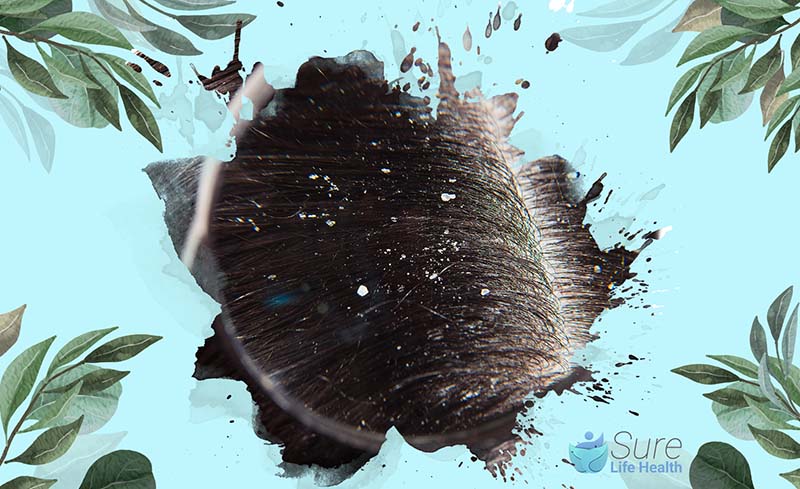
Nurtures Scalp Health
Maintaining scalp health is crucial for robust hair growth. A healthy scalp significantly influences hair texture and overall hair condition. Clove oil serves as a natural cleanser, enriching your scalp with essential nutrients. It effectively soothes itchy, irritated skin by improving blood circulation and hydration.
Moreover, clove oil’s strong antimicrobial, antifungal, and antiseptic properties help heal and prevent scalp conditions such as seborrheic dermatitis. Regular use of clove oil can detoxify your scalp, eliminating grease and dirt while leaving your hair smelling fresh.
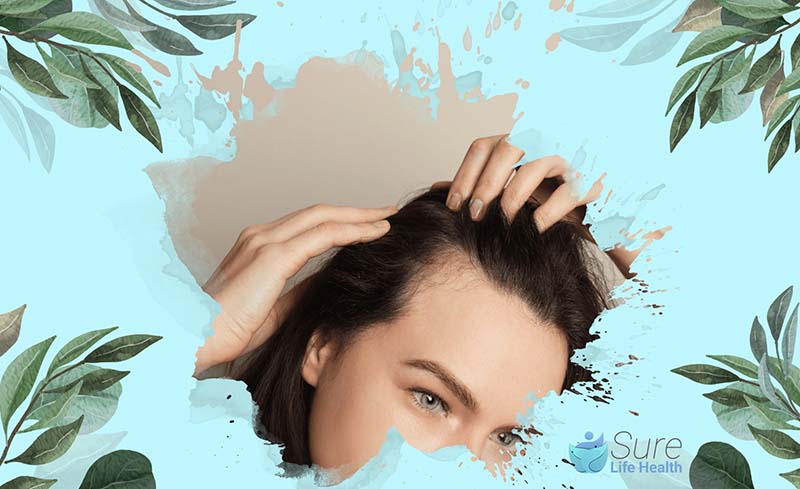
Boosts Hair Shine
Dull, dry, and brittle hair often signals a need for extra nourishment. Clove oil is perfect for reviving your hair’s luster. It deeply conditions rough strands, enhancing shine and reducing the likelihood of damage.
This oil helps tame frizz and mend split ends, making your hair smooth and manageable. Regularly treating your hair with clove oil, which is rich in fatty acids and proteins, results in stronger, shinier, and healthier hair.
For optimal results, use clove oil in an overnight anti-frizz treatment. Mix it with warm coconut oil and apply to your scalp and hair before bedtime. Rinse with lukewarm water and shampoo the next morning. Implement this treatment weekly for radiant, beautiful hair.
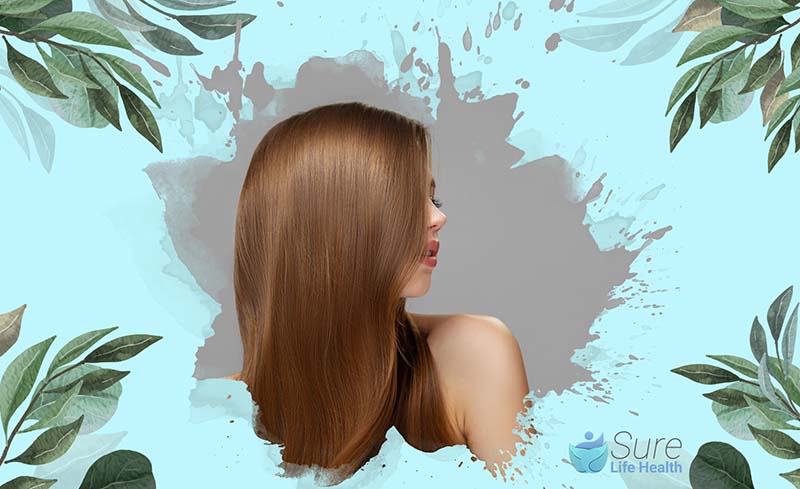
Prevents Premature Graying
Factors contributing to early graying include health disorders, hormonal imbalances, and unhealthy lifestyle choices. Clove oil is beneficial in this regard due to its unique composition.
It enhances the production of melanin, the pigment that determines hair color. Additionally, the antioxidants in clove oil combat oxidative stress, which is a common cause of premature graying.
For restoring natural hair color, mix 3 tablespoons of eucalyptus oil with a teaspoon of clove oil and massage this blend into your scalp and hair twice a week.
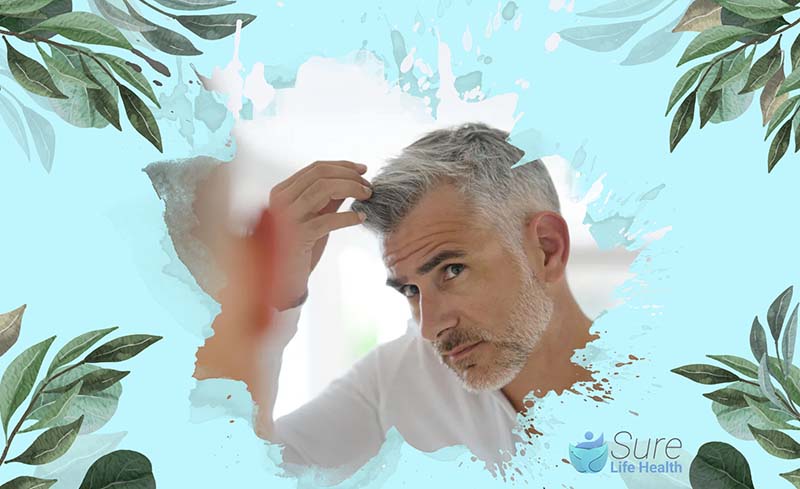
Diminishes Hair Loss
Hair loss can stem from weakened hair follicles or bad environmental conditions. It can also signal underlying health issues.
Early intervention is crucial to prevent severe outcomes like balding or thinning hair. While many home remedies offer gradual improvements, clove oil provides a more immediate remedy.
Applying a small amount of clove oil to your scalp can help mask bald spots and fortify your hair shaft, reducing unnecessary hair fall. Regular use of clove essential oil not only prevents hair loss but also enhances hair volume, leaving your locks looking full and vibrant.
Using Clove Oil For Hair Growth
Clove oil benefits for hair are abundant. Popular applications include clove-infused oil, clove water rinse, and DIY clove hair masks, each supporting hair growth in unique ways.
Here’s A Recipe to Use Clove Oil for Hair Growth:
- Crush half a teaspoon of whole cloves using a mortar and pestle.
- Place the crushed cloves into a jar with 4 ounces of a carrier oil like coconut, jojoba, or olive oil.
- Seal the jar and allow the cloves to infuse for one week.
- After a week, strain the oil to remove the cloves and transfer the clove oil into a clean bottle or jar.
- Use this oil to massage your scalp, enhancing blood circulation to the hair follicles. Leave the oil on your scalp for about 20 minutes before shampooing.
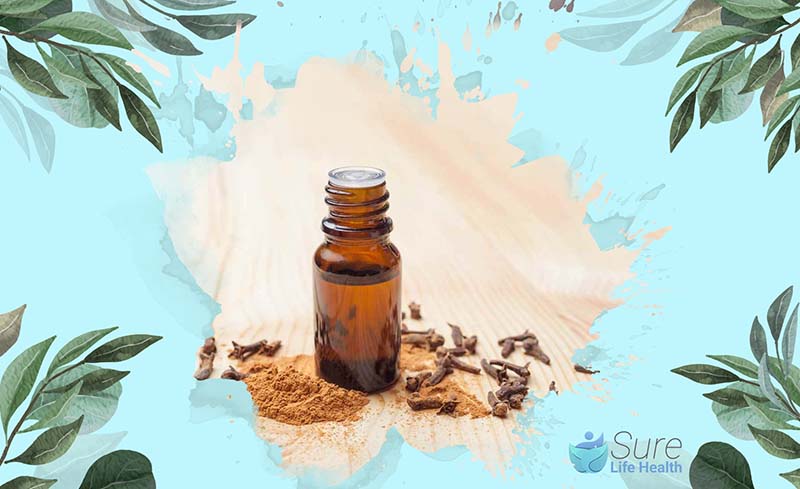
What Else Can You Combine With Clove Oil?
Clove oil can be paired with various natural ingredients to enhance hair growth and overall scalp health. Here are some combinations that you can choose from:
- Clove Oil and Coconut Oil: Coconut oil is renowned for its deep moisturizing properties. It nourishes the scalp and hair, creating an ideal environment for hair growth. When combined with clove oil, which stimulates circulation, the blend promotes healthy hair development.
- Clove Oil and Castor Oil: Castor oil is valued for its hair thickening abilities. It encourages hair regrowth. This duo works synergistically to enhance each other’s effects, providing a powerful solution for thinning hair.
- Clove Oil and Olive Oil: Olive oil is packed with antioxidants and essential vitamins that strengthen hair. Integrating clove oil into the mix boosts scalp health and fosters robust hair growth.
- Clove Oil and Aloe Vera: Aloe vera is a soothing agent for the scalp and is loaded with vital nutrients. Combined with clove oil, this mixture can significantly reduce hair fall and stimulate hair growth.
- Clove Oil and Jojoba Oil: Jojoba oil closely resembles the natural oils produced by the scalp. Thus, it helps to maintain a balanced scalp environment. When used with clove oil, it can improve hair texture and support healthy hair growth.
- Clove Oil and Tea Tree Oil: Tea tree oil offers antifungal and antibacterial benefits, making it excellent for scalp health. Mixed with clove oil, this combination not only fosters hair growth but also ensures the scalp remains clean and free from infection.
Notes: When creating mixtures with clove oil, it’s essential to dilute these essential oils properly to avoid irritation or adverse reactions. Generally, it is recommended to use a few drops of essential oil per tablespoon of carrier oil. This ensures that the scalp receives the benefits without the risk of overwhelming it. Regular use can lead to visibly healthier and fuller hair.
Possible Side Effects Of Clove Oil
While clove oil benefits for hair are great, it’s crucial to approach its use with caution due to potential side effects. If adverse reactions occur, it’s important to discontinue use immediately. Here are some common side effects associated with clove oil:
- Scalp Irritation: If you have sensitive skin, or if you use undiluted clove oil, you may experience skin redness, itching, burning, or stinging sensations on the scalp.
- Allergic Skin Reaction: Some users may encounter severe allergic reactions, including hives, skin blistering, intense redness, itchiness, and burning sensations.
- Eye Irritation: Accidental contact with the eyes can lead to severe irritation or potential damage. It is imperative to avoid such contact when handling clove oil.
These precautions will help mitigate the risks associated with clove oil, allowing you to enjoy its benefits safely.
Conclusion
Is clove oil good for hair? You know it is. Clove oil is a versatile and effective solution for a range of hair health issues. Whether you’re looking to stimulate hair growth, reduce dandruff, or restore natural shine, clove oil offers a natural remedy packed with powerful benefits.
We encourage you to try incorporating clove oil into your hair care routine and share your experiences with us. Your stories inspire us and help others in our community to discover new solutions. Don’t forget to explore more informative and helpful blogs from Sure Life Health, where we continue to uncover the best in natural health care.
Professor Gaye Cunnane, PhD, MB, FRCPI
As the Director of Health and Wellbeing at RCPI, Professor Gaye Cunnane is at the helm of initiatives aimed at enhancing the health and well-being of RCPI Trainers and Trainees. Her role extends beyond administration; she is also a respected clinical professor of rheumatology and a consultant rheumatologist at Trinity College Dublin (TCD) and St James’s Hospital. Prof. Cunnane’s medical journey began at TCD, where she graduated from medical school, and her path has been marked by both clinical and academic excellence.
After completing her basic clinical training in medicine, she embarked on PhD studies at University College Dublin and St Vincent’s University Hospital. Her research during this period was focused on prognostic markers in early inflammatory arthritis, a project that saw her collaborating with esteemed universities across Europe, including in Switzerland, The Netherlands, the UK, and Sweden.
Prof. Cunnane’s career took her to the University of California, San Francisco, where she spent three years delving into research on new treatments for lupus. Her academic prowess led her to the University of Leeds in 2001 as a senior lecturer, before returning to Ireland in 2003 to assume her current roles. She has also served as the National Specialty Director for Rheumatology training in Ireland, Programme Director for Basic Specialist Training with RCPI, and as a past President of the Irish Society for Rheumatology.
PUBLISHED ARTICLES
“Rheumatic disease differentiation using immunoglobulin G sugar printing by high-density electrophoresis”: Published in The Journal of Rheumatology, this study reflects her in-depth investigation into rheumatic diseases.
“Benefits of exercise in patients with rheumatoid arthritis: a randomized controlled trial”: This research work, highlighting the positive impact of exercise on rheumatoid arthritis, underscores Prof. Cunnane’s dedication to practical, patient-centered research.
Additionally, Prof. Cunnane has made notable contributions to the Annals of the Rheumatic Diseases, discussing early referral, diagnosis, and treatment of rheumatoid arthritis. She has also been involved in a study on the NCBI platform investigating exercise benefits in rheumatoid arthritis patients.
Professor Gaye Cunnane’s career is a testament to her commitment to improving patient outcomes in rheumatology through rigorous research, clinical excellence, and dedicated teaching. Her work continues to influence the field of rheumatology, both in Ireland and internationally.

